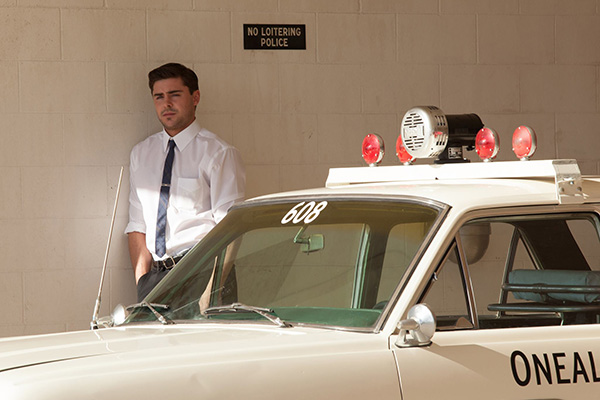
“Parkland” is neither as thought-provoking nor as illuminating as it aspires to be. Considering its material — several untold perspectives of the aftermath of President John F. Kennedy’s assassination in 1963 — this failure is particularly disappointing.
“Parkland” features a tremendous cast, including Zac Efron and Billy Bob Thornton as a doctor and FBI head, respectively. Unfortunately, the marquee names do little more than fill space when the film truly needs a stronger plot. For the most part, the acting is mediocre, especially from Efron. His out-of-place good looks, ceaseless pout and blank stares distract rather than impress. Meanwhile, Thornton simply yells at every other character to an exhausting degree.
Despite the dull acting in “Parkland,” one actor emerges as the real gem of the film. Paul Giamatti shines as Abraham Zapruder, the astonished eyewitness and cameraman to JFK’s last moments. He exemplifies exactly what every other character should have been. Giamatti plays his role true to life, without frivolous melodrama or artificial excess.
James Badge Dale is also quite good as Robert Oswald, Lee Harvey Oswald’s humiliated brother. A mysterious character in the first portion of the film, the audience only sees the name Oswald on his office desk while he is working. As “Parkland” continues, however, the viewer learns more about Robert, and much of that is the sophistication and subtlety of Dale’s performance.
“Parkland’s” semblance of a plot is a shaky one despite its foundation in true events. The film amounts to nothing more than a mishmash of little narratives cobbled together into a mess of confusion. This storytelling style does little to complement the film’s technical aspects, which are surprisingly impressive.
One of the film’s sole redeeming qualities is its stunning cinematography. The effective use of drifting camera shots and blurry backdrops demands the viewer’s focus on each main character individually, fully absorbing the dialogue and allowing them to interpret the scene at hand.
Audio also plays a prominent role in the film because sounds signify various meanings. A baby crying at Oswald’s funeral, for example, demonstrates the ways Robert Oswald’s life will always be tainted. A telephone ringing at Zapruder’s home shows how his life has been permanently altered by the assassination. The sounds are haunting in their own distinct ways, showing what is most important about a specific moment.
Despite how unbalanced and complicated the film is, “Parkland” still presents exemplary stylistic elements. But style and cinematography do not capture the attention of audiences — characters and performances do. Writer and director Peter Landesman seems to have entirely misunderstood this concept, and this mistake ultimately sinks “Parkland.”
A version of this article appeared in the Thursday, Oct. 3 print edition. Kathy Dimaya is a contributing writer. Email her at [email protected].























































































































































